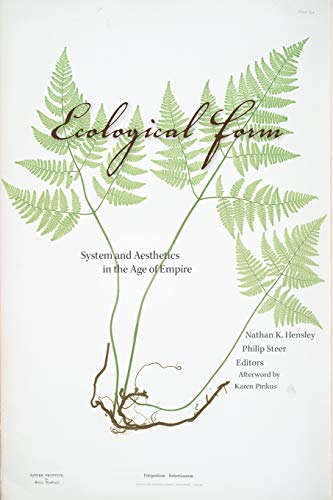All books / Book
Ecological Form: System and Aesthetics in the Age of Empire

| Full title: | Ecological Form: System and Aesthetics in the Age of Empire |
|---|---|
| ISBN: | 9780823282111 |
| ISBN 10: | 0823282112 |
| Authors: | |
| Publisher: | Fordham University Press |
| Edition: | 1 |
| Num. pages: | 256 |
| Binding: | Paperback |
| Language: | en |
| Published on: | 2018 |
Read the reviews and/or buy it on Amazon.com
Synopsis
In both metaphorical and brutely chemical senses, the atmosphere we breathe today is the atmosphere of the British Empire. Fired by coal and bent on remaking the world in its own image, Victorian England was history's first industrial society and its most powerful global empire. Ecological Form coordinates those facts to show how one version of the Anthropocene first emerged into visibility in the nineteenth century. These eleven new essays by leading voices in nineteenth century ecocriticism suture the lingering divide between postcolonial and ecocritical approaches to show how Victorian thinkers used aesthetic form to engage problems of system, interconnection, and dispossession that remain our own. Using what the editors describe as ecological formalism, these sharply-written interventions open new dimensions to our understanding of the Age of Coal. They reconsider Victorian literary structures in light of environmental catastrophe; coordinate natural questions with sociopolitical ones; and underscore the category of form--as built structure, internal organizing logic, and generic code--as a means for generating environmental and therefore political knowledge. Moving from the elegy and the industrial novel to the utopian romance, the scientific treatise, and beyond, the contributors renovate our understanding of the era's major forms and key writers, including Thomas Hardy, George Eliot, John Ruskin, and Joseph Conrad. But they also show how less celebrated figures such as Dinabandhu Mitra, Samuel Butler, and Joseph Dalton Hooker speak to the never more pressing question of how to imagine interconnection at world scale. Ecological Form shows how nineteenth century thinkers conceived of the circuits of extraction and violence linking Britain to its global network. But its most pressing argument is that this past thought can be a resource for reimagining the present.